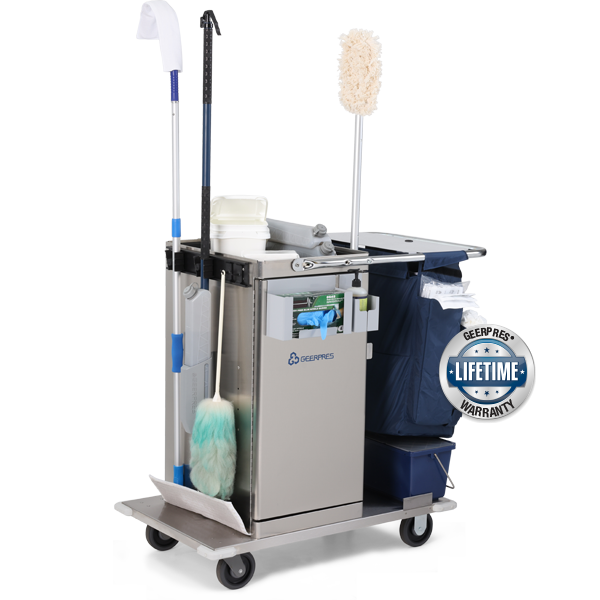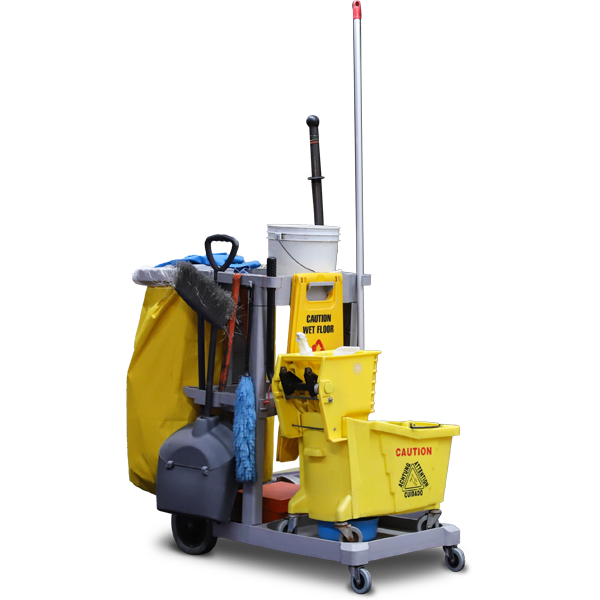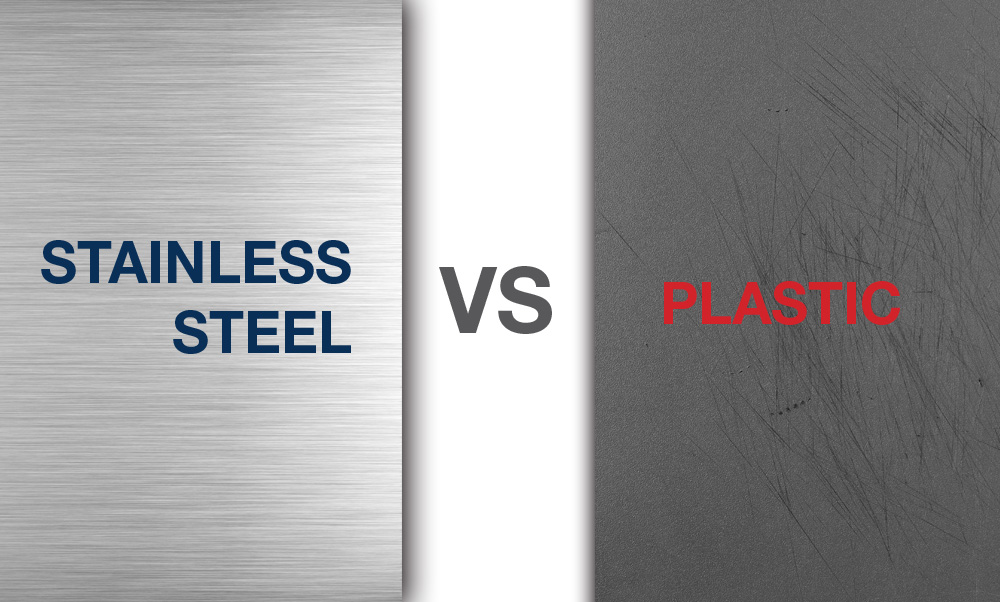SUSTAINABILITY MATTERS
Enterprise® Stainless Steel vs Plastic EVS Carts
When it comes to choosing between stainless steel and plastic EVS carts, there are significant differences. It is important to consider the environmental impact, health and safety considerations, and lifetime cost when making your choice.
In addition to all the environmental benefits, stainless steel has a clean, professional appearance, is extremely hygienic, easy to maintain, and highly durable.
Conclusion: Stainless steel is a symbol of environmental responsibility.
ADDITIONAL NEWS:
Knowledge is Power
Advantex® Driving Innovation
Clean smarter. Clean safer. Clean with Advantex®.Geerpres® has a long-standing reputation for delivering innovative cleaning products and solutions. Our mission is centered on creating value and driving efficiency across the cleaning industry. In 2015, we introduced...
Patient Room Floor Challenge
The Challenge ACCEPTED First, the EVS team cleaned a patient's room with a laundered or competitor microfiber mop system and let the floor air dry. Then, again, the same patient room floor was cleaned with an Advantex® single-use microfiber mop system. See for...
What should you know about Denier & Superior Efficacy?
The skinny on DenierDenier Denier is a unit of measurement used to determine the fiber thickness of individual threads used to create fabrics. Microfiber is a broad term for synthetic fiber finer than one or 1.3 denier thickness, which is 1/100th the diameter of a...


Geerpres® Stainless Steel Enterprise® EVS Carts
Common Plastic EVS Carts
Production Impact
Stainless steel is an alloy of iron, and, in some cases, other metals. Thoroughly and infinitely recyclable, stainless steel is considered the “green material,” ultimately requiring less raw natural resources because the recovery rate is close to 100%.
Plastic extraction and processing requires significant amounts of oil or natural gas resources and can have significant environmental consequences, such as air and water pollution, habitat damage, and greenhouse gas emissions.
health & safety
Stainless steel is antibacterial and easy to sanitize. The non-porous metal prevents the buildup of germs and infection-causing bacteria. The high corrosion resistance holds up to the cleaning solutions that contain acid.
Chemical cleaners can cause discoloration and cracks in the plastic. These harbor points are collection zones for grime and pathogens. Plastic carts may act as carriers of pathogenic bacteria and viruses.
durability & reusability
Stainless steel is resistant to corrosion and is a highly durable and long-lasting material that can be recycled indefinitely without losing its quality or strength.
Life-cycle = 20+ Years
Plastic is a relatively cheap and lightweight material commonly used for low-grade EVS cart manufacturing. It is less durable than stainless steel and is prone to breaking down and degrading over time.
Life-cycle = 4-6 Years
end-of-life Impact

Geerpres® Stainless Steel Enterprise® EVS Carts
Production Impact
Stainless steel is an alloy of iron, and, in some cases, other metals. Thoroughly and infinitely recyclable, stainless steel is considered the “green material,” ultimately requiring less raw natural resources because the recovery rate is close to 100%.
health & safety
Stainless steel is antibacterial and easy to sanitize. The non-porous metal prevents the buildup of germs and infection-causing bacteria. The high corrosion resistance holds up to the cleaning solutions that contain acid.
durability & reusability
Stainless steel is resistant to corrosion and is a highly durable and long-lasting material that can be recycled indefinitely without losing its quality or strength.
Life-cycle = 20+ Years
end-of-life Impact
At the end of its life, stainless steel can be recycled into new products, reducing the need for new mining and production.

Common Plastic EVS Carts
Production Impact
Plastic extraction and processing requires significant amounts of oil or natural gas resources and can have significant environmental consequences, such as air and water pollution, habitat damage, and greenhouse gas emissions.
health & safety
Chemical cleaners can cause discoloration and cracks in the plastic. These harbor points are collection zones for grime and pathogens. Plastic carts may act as carriers of pathogenic bacteria and viruses.
durability & reusability
Plastic is a relatively cheap and lightweight material commonly used for low-grade EVS cart manufacturing. It is less durable than stainless steel and is prone to breaking down and degrading over time.
Life-cycle = 4-6 Years
end-of-life Impact
Plastic can be recycled, but it is often difficult and expensive, so disposed plastic carts frequently end up in landfills, where it takes hundreds of years to break down.

